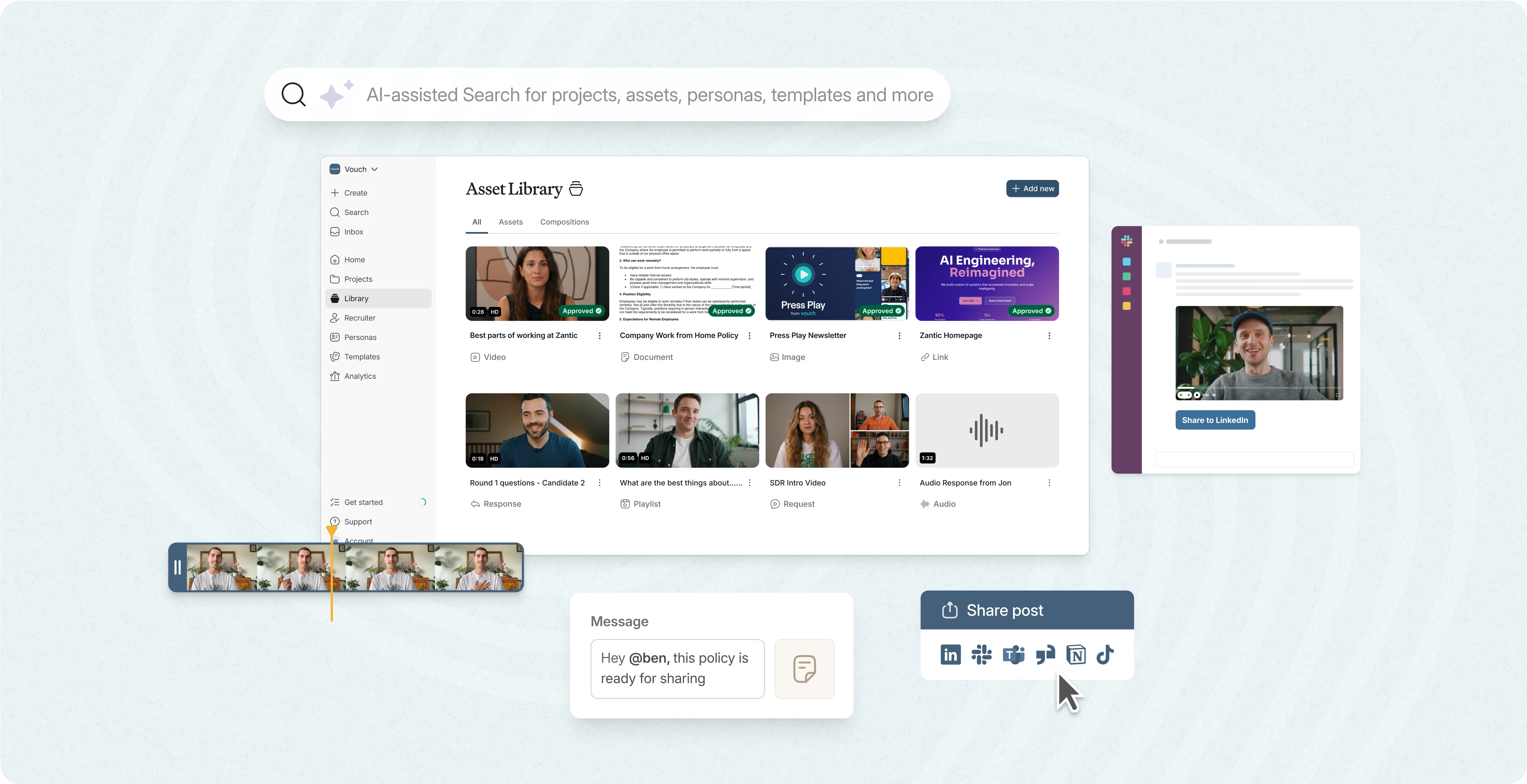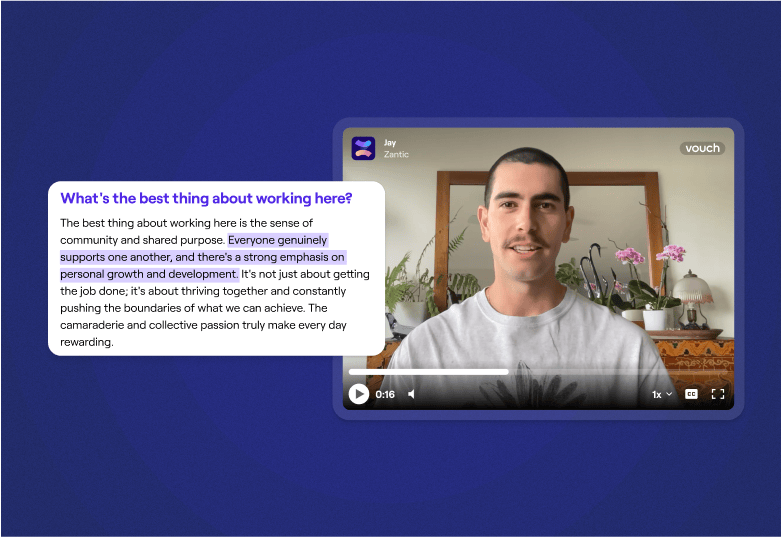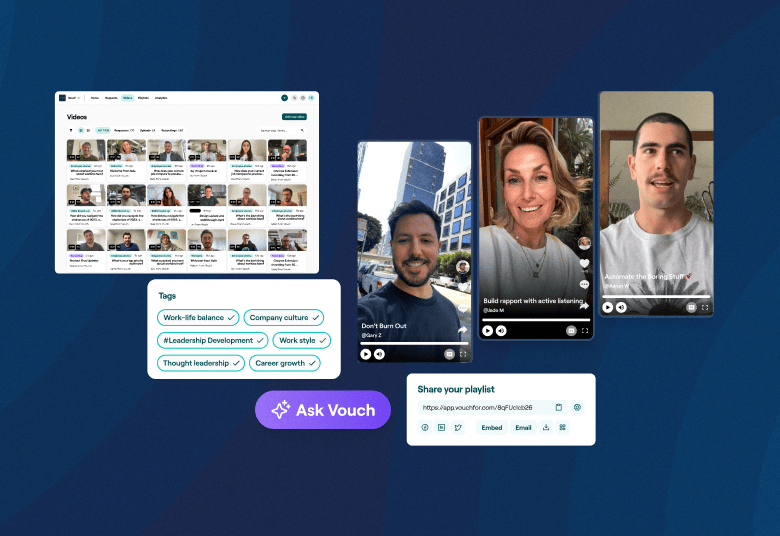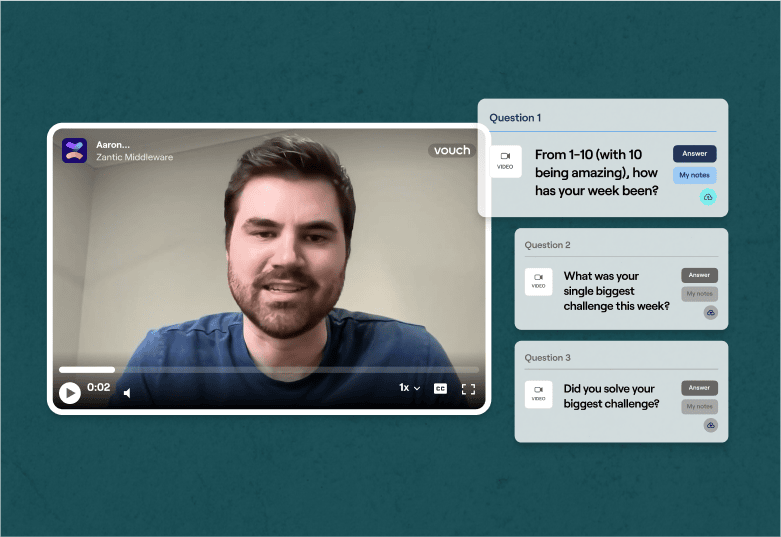Today, companies are paying close attention to how they manage, develop, and retain employees.
And it's this employee growth and loyalty where talent development jobs and tools like Vouch come into play.
But what exactly do talent development professionals do, and why are these roles so crucial for success?
Let's dive in and learn all about Talent Development Jobs in 2025.
Let's dive in.
What's the Purpose of Talent Development?
At its core, talent development aims to build you a stronger workforce.
It's not just about filling positions; it's about finding amazing talent and focusing on improving your employees' skills, enhancing their professional growth, and ensuring they have the tools and training needed to succeed in their roles.
From designing training programs with micro-learning videos to help build leadership skills, these professionals are at the heart of modern organizational development.
Talent development jobs can be found in various industries, from tech companies to healthcare and beyond, in fact, almost every industry can benefit from having talent development leaders on their teams.
The AI-enabled workspace for talent teams.
- Unified workspace for talent teams
- Accelerate hiring with AI tools
- Auto-generate polished hiring and employer brand content
- Easily repurpose assets across all channel
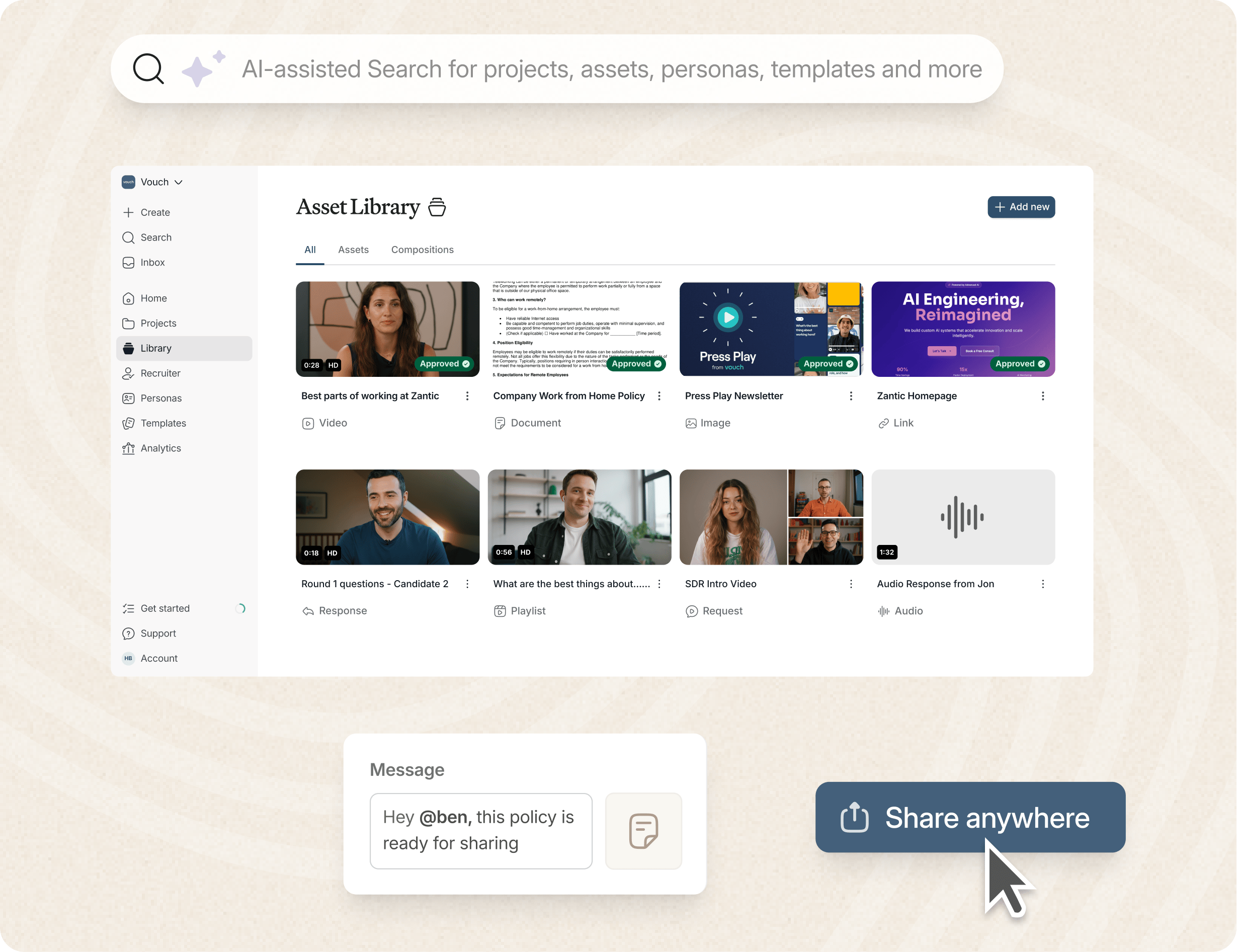
What Are The Key Responsibilities Of Talent Development Jobs?
Talent development goes well beyond just hiring or recruiting.
Here's a breakdown of what talent development professionals typically handle:
Ongoing Training & Development:
Creating training programs tailored to the specific needs of the workforce. For instance, Harley-Davidson Motor Company invests heavily in adult education and continuous improvement programs to ensure their workforce remains competitive.
Career Pathing:
Designing clear professional development opportunities to help employees move up the career ladder within the company.
Leadership Development:
Building leadership programs that identify and nurture future leaders.
Curriculum Development:
This involves designing educational content or modules, particularly in adult learning methodologies and asynchronous learning initiatives.
Talent Management:
Working closely with HR teams and talent management partners ensures that the company retains quality talent by providing attractive development opportunities.
What Are The Industry Statistics on Talent Development in 2025?
- Talent Development Is a Key Focus: According to a 2024 report by Deloitte, 72% of organizations see talent development as a key business priority, reflecting an increase from 62% in 2021. Source: Deloitte Insights.
- Training Investment Is Rising: Organizations globally are increasing their training budgets. A LinkedIn Workplace Learning Report states that spending on employee training and development grew by 20% year-over-year, with businesses now investing an average of $1,500 per employee annually. Source: LinkedIn.
- Leadership Programs Drive Retention: Research by KPMG Australia shows that companies offering leadership development programs experience a 25% higher employee retention rate. This highlights the critical role leadership programs play in talent development.
- The Role of Technology: A report by Gartner indicates that 64% of companies are using technology to enhance their talent development strategies, including tools for asynchronous learning and project management. Source: Gartner.
- Positive Impact on Company Culture: Companies with structured talent development programs report a 35% improvement in employee engagement and organizational culture. This data from Frazer Jones emphasizes the importance of development in shaping a positive work environment. Source: Frazer Jones.
What Are The Different Types of Talent Development Jobs Available?
When it comes to the various types of talent development jobs, and while responsibilities might overlap, each role offers unique functions and focus areas.
Here are the main talent development roles:
1. Talent Development Specialist
Responsible for identifying training needs, designing curriculum, and implementing programs that enhance employee skills. These specialists work across industries and often collaborate with external training providers.
2. Leadership & Talent Partner
This role focuses on identifying future leaders and developing programs that align with organizational leadership philosophies. They ensure the leadership pipeline is robust and ready for future challenges.
3. Talent Management Partner
Overseeing the broader strategy of talent acquisition, development, and retention. They collaborate closely with HR and talent acquisition specialists to ensure the right people are being nurtured and promoted within the company.
4. Organizational Development Consultant
Typically brought in for larger-scale projects, these consultants help companies align their talent development strategies with business goals. They often focus on change management, workforce planning, and project delivery services.
5. Training and Development Specialist
Focuses specifically on training delivery, which could range from technical consulting services to soft skills development. These professionals play a crucial role in ensuring training programs are relevant and impactful.
What Does The Future Of Talent Development Look Like?
As companies continue to embrace flexible work models, talent development is evolving. Remote work, asynchronous learning with tools like Vouch, and continuous professional development are becoming standard across most industries.
In 2025, the role of the Talent Development Specialist is more critical than ever, and companies are investing more in leadership programs, ensuring their teams are adaptable to future challenges.
Moreover, the rise of AI in recruitment operations has allowed talent development professionals to focus more on personalized training programs.
Tools like Vouch are also being leveraged by modern companies seeking to engage in quick, accessible professional development content.
FAQs
What's the difference between talent acquisition and talent development?
Talent acquisition focuses on hiring new employees, while talent development focuses on improving the skills of current employees.
Do talent development jobs require specific certifications?
Many positions may require certifications in human resources or training development, such as those from SHRM or ATD.
How much do talent development specialists earn?
Salaries vary, but in 2025, talent development specialists in the U.S. can expect to earn between $45,000 and $95,000 annually, depending on the level of experience.
Can talent development roles be remote?
Yes, many organizations now offer remote roles for talent development professionals, particularly those focused on asynchronous learning initiatives.
What industries hire talent development professionals?
Talent development roles are common in various sectors, including healthcare, technology, education, and finance.
Is talent development important for small businesses?
Absolutely. Even smaller companies can benefit from developing their employees' skills, leading to better retention and overall performance.
How do I apply for a talent development job?
Start by searching on job sites like LinkedIn or Indeed and ensure your resume highlights relevant experience in leadership programs, training delivery, and organizational development.
In conclusion, talent development jobs are all about creating growth within an organization. Whether through leadership programs, ongoing training, or curriculum development, these roles ensure companies stay competitive and employees continue to evolve.
As the workplace continues to shift, investing in talent development will be a critical strategy for organizations worldwide, and so will leveraging modern tools like Vouch.
Talent Development Professionals Love Vouch.
Loved by companies like Canva, Nike, Cisco, HubSpot, Amazon, and more, tools like Vouch make leveraging video in your talent development remarkably easy.
Book a Vouch demo today and chat with a video content marketing expert about your business needs.
You might also like

Elevate Your Brand Today With Vouch
Discover how Vouch can accelerate talent acquisition while helping you stay on-brand.


